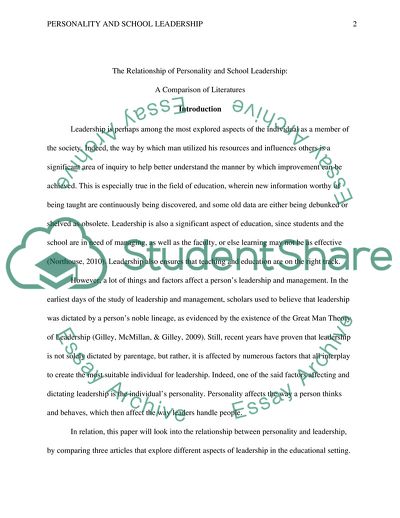Cite this document
(The Relationship of Personality and School Leadership: a Comparison of Literatures Article Example | Topics and Well Written Essays - 1750 words, n.d.)
The Relationship of Personality and School Leadership: a Comparison of Literatures Article Example | Topics and Well Written Essays - 1750 words. https://studentshare.org/education/1770706-personality-and-school-leadership
The Relationship of Personality and School Leadership: a Comparison of Literatures Article Example | Topics and Well Written Essays - 1750 words. https://studentshare.org/education/1770706-personality-and-school-leadership
(The Relationship of Personality and School Leadership: A Comparison of Literatures Article Example | Topics and Well Written Essays - 1750 Words)
The Relationship of Personality and School Leadership: A Comparison of Literatures Article Example | Topics and Well Written Essays - 1750 Words. https://studentshare.org/education/1770706-personality-and-school-leadership.
The Relationship of Personality and School Leadership: A Comparison of Literatures Article Example | Topics and Well Written Essays - 1750 Words. https://studentshare.org/education/1770706-personality-and-school-leadership.
“The Relationship of Personality and School Leadership: A Comparison of Literatures Article Example | Topics and Well Written Essays - 1750 Words”. https://studentshare.org/education/1770706-personality-and-school-leadership.


